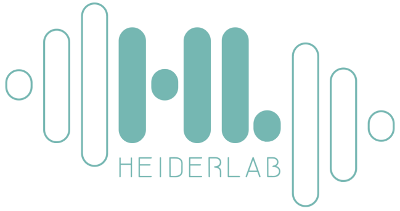CORona Drug InTEractions database
Profiling SARS-CoV-2 Main Protease (MPRO) Binding to Repurposed Drugs Using Molecular Dynamics Simulations in Classical and Neural Network-Trained Force Fields
Aayush Gupta, Huan-Xiang Zhou
Abstract
The current COVID-19 pandemic caused by a novel coronavirus SARS-CoV-2 urgently calls for a working therapeutic. Here, we report a computation-based workflow for efficiently selecting a subset of FDA-approved drugs that can potentially bind to the SARS-CoV-2 main protease MPRO. The workflow started with docking (using Autodock Vina) each of 1615 FDA-approved drugs to the MPRO active site. This step selected 62 candidates with docking energies lower than −8.5 kcal/mol. Then, the 62 docked protein–drug complexes were subjected to 100 ns of molecular dynamics (MD) simulations in a molecular mechanics (MM) force field (CHARMM36). This step reduced the candidate pool to 26, based on the root-mean-square-deviations (RMSDs) of the drug molecules in the trajectories. Finally, we modeled the 26 drug molecules by a pseudoquantum mechanical (ANI) force field and ran 5 ns hybrid ANI/MM MD simulations of the 26 protein–drug complexes. ANI was trained by neural network models on quantum mechanical density functional theory (wB97X/6-31G(d)) data points. An RMSD cutoff winnowed down the pool to 12, and free energy analysis (MM/PBSA) produced the final selection of 9 drugs: dihydroergotamine, midostaurin, ziprasidone, etoposide, apixaban, fluorescein, tadalafil, rolapitant, and palbociclib. Of these, three are found to be active in literature reports of experimental studies. To provide physical insight into their mechanism of action, the interactions of the drug molecules with the protein are presented as 2D-interaction maps. These findings and mappings of drug–protein interactions may be potentially used to guide rational drug discovery against COVID-19.
Source: PubMed
Related molecules
Related interactions
| Target | Target affiliation | Drug | Type | Result |
|---|---|---|---|---|
| Target | Target affiliation | Drug | Type | Result |
| Name | Synonyms | Genes | Origin |
|---|---|---|---|
| Name | Synonyms | Genes | Origin |
| Name | Synonyms | PubChem | DrugBank | RCSB PDB | ATC |
|---|---|---|---|---|---|
| Name | Synonyms | PubChem | DrugBank | RCSB PDB | ATC |
| Title | Authors | DOI | Source | Article type | Date |
|---|---|---|---|---|---|
| Title | Authors | DOI | Source | Article type | Date |
| Title | Status | Phases | Start Date | Prim. Comp. Date | Comp. Date | First Post. Date |
|---|---|---|---|---|---|---|
| Title | Status | Phases | Start Date | Prim. Comp. Date | Comp. Date | First Post. Date |
CORDITE (CORona Drug InTEractions database) collects and aggregates data from PubMed, MedRxiv, BioRxiv, ChemRxiv and PMC for SARS-CoV-2. Its main focus is set on drug interactions either addressing viral proteins or human proteins that could be used to treat COVID. It collects and provides up-to-date information on computational predictions, in vitro, as well as in vivo study data.
The information provided is for research only and we cannot guarantee the correctness of the data.
Please contact dominik.heider@uni-muenster.de for further information.
Programmable access
There is an open API for access programmatically to the database. The API will print a JSON output:
- Interactions
https://cordite-api.uni-muenster.de/api.php?action=list&table=interaction
- Targets
https://cordite-api.uni-muenster.de/api.php?action=list&table=target
- Drugs
https://cordite-api.uni-muenster.de/api.php?action=list&table=drug
- Publications
https://cordite-api.uni-muenster.de/api.php?action=list&table=publication
- Clinical trials
https://cordite-api.uni-muenster.de/api.php?action=list&table=clinical_trial

